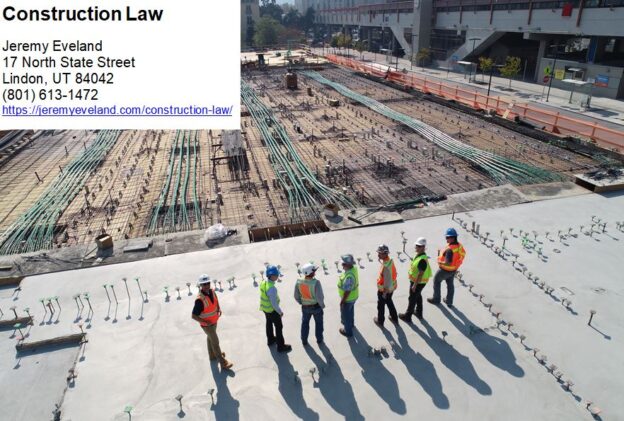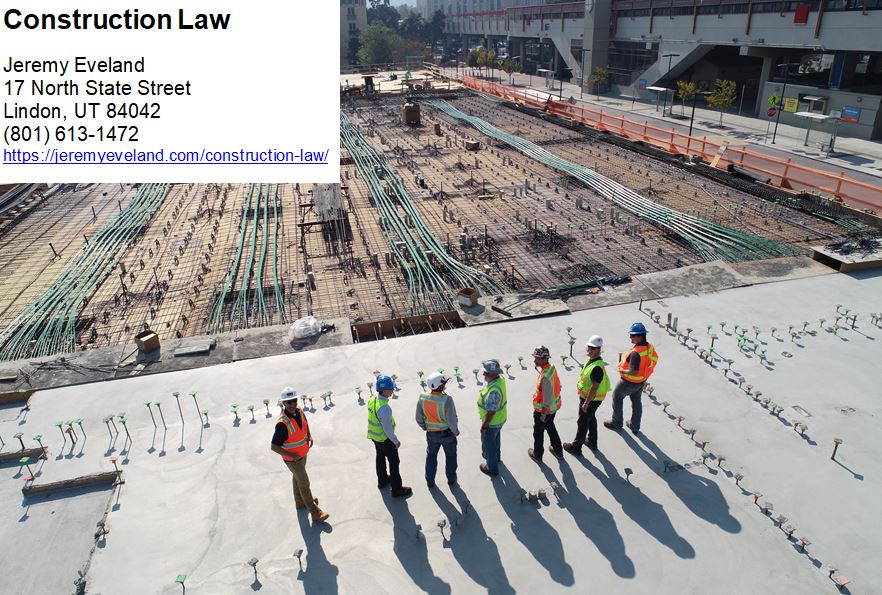Business Contract Lawyer Riverton UT
-
Legal Topics
- Introduction
- The Benefits of Working with a Business Contract Lawyer in Riverton UT
- Understanding the Different Types of Business Contracts and How a Lawyer Can Help
- What to Look for When Hiring a Business Contract Lawyer in Riverton UT
- How to Draft a Business Contract and What to Include
- Common Mistakes to Avoid When Negotiating a Business Contract in Riverton UT
- Q&A
“Secure Your Business with a Professional Business Contract Lawyer in Riverton UT!”
Introduction
Welcome to Business Contract Lawyer Riverton UT! We are a full-service law firm dedicated to providing comprehensive legal services to businesses in the Riverton area. Our experienced attorneys specialize in business contract law, providing legal advice and representation to businesses of all sizes. We understand the complexities of business contracts and strive to ensure that our clients’ interests are protected. Our attorneys are knowledgeable in all aspects of contract law, including drafting, negotiating, and enforcing contracts. We are committed to providing our clients with the highest quality legal services and strive to ensure that their business contracts are legally sound and enforceable. We look forward to helping you with all of your business contract needs.
The Benefits of Working with a Business Contract Lawyer in Riverton UT
Working with a business contract lawyer in Riverton UT can be a great asset for any business. A business contract lawyer can help protect a business’s interests and ensure that all parties involved in a contract are held to the terms of the agreement. Here are some of the benefits of working with a business contract lawyer in Riverton UT.
1. Expertise: A business contract lawyer in Riverton UT has the expertise and experience to ensure that all parties involved in a contract are held to the terms of the agreement. They can review contracts and provide advice on how to best protect a business’s interests.
2. Negotiation: A business contract lawyer in Riverton UT can help negotiate the terms of a contract to ensure that all parties involved are satisfied with the outcome. They can also help resolve any disputes that may arise during the negotiation process.
3. Compliance: A business contract lawyer in Riverton UT can help ensure that a business is in compliance with all applicable laws and regulations. This can help protect a business from potential legal issues down the line.
4. Cost Savings: Working with a business contract lawyer in Riverton UT can help save a business money in the long run. A lawyer can help ensure that a business is not overpaying for services or entering into contracts that are not in its best interests.
Working with a business contract lawyer in Riverton UT can be a great asset for any business. A lawyer can help protect a business’s interests and ensure that all parties involved in a contract are held to the terms of the agreement. They can also help negotiate the terms of a contract, ensure compliance with applicable laws and regulations, and help save a business money in the long run.
Understanding the Different Types of Business Contracts and How a Lawyer Can Help
Business contracts are legally binding documents that outline the terms and conditions of a business relationship. They are used to protect the interests of all parties involved and to ensure that all parties understand their rights and obligations. Contracts can be used for a variety of business purposes, including sales, leases, employment, and services.
When entering into a business contract, it is important to understand the different types of contracts and how they can be used. The most common types of business contracts include:
1. Sales Contracts: Sales contracts are used to define the terms of a sale between two parties. They outline the price, payment terms, delivery terms, and any warranties or guarantees associated with the sale.
2. Lease Contracts: Lease contracts are used to define the terms of a lease between two parties. They outline the rental amount, payment terms, length of the lease, and any other terms associated with the lease.
3. Employment Contracts: Employment contracts are used to define the terms of an employment relationship between two parties. They outline the job duties, salary, benefits, and any other terms associated with the employment relationship.
4. Service Contracts: Service contracts are used to define the terms of a service agreement between two parties. They outline the services to be provided, payment terms, and any other terms associated with the service agreement.
Having a lawyer review a business contract is important to ensure that all parties understand their rights and obligations. A lawyer can help to ensure that the contract is legally binding and enforceable. They can also help to identify any potential issues or risks associated with the contract.
In conclusion, understanding the different types of business contracts and how a lawyer can help is essential for any business. Contracts are legally binding documents that outline the terms and conditions of a business relationship. They can be used for a variety of business purposes, including sales, leases, employment, and services. Having a lawyer review a business contract is important to ensure that all parties understand their rights and obligations and to identify any potential issues or risks associated with the contract.
What to Look for When Hiring a Business Contract Lawyer in Riverton UT
When hiring a business contract lawyer in Riverton UT, it is important to look for a lawyer who is experienced in the area of business contract law. The lawyer should have a thorough understanding of the laws and regulations that govern business contracts in the state of Utah. Additionally, the lawyer should have a good reputation for providing quality legal services.
When interviewing potential lawyers, it is important to ask questions about their experience in business contract law. Ask about the types of cases they have handled in the past and the results they have achieved. It is also important to inquire about the lawyer’s fees and payment terms.
It is also important to ask the lawyer about their communication style. A good lawyer should be able to explain complex legal concepts in a way that is easy to understand. Additionally, the lawyer should be willing to answer any questions that you may have.
Finally, it is important to make sure that the lawyer is licensed to practice law in the state of Utah. This will ensure that the lawyer is knowledgeable about the laws and regulations that govern business contracts in the state. Additionally, it will ensure that the lawyer is up to date on any changes to the law that may affect your business.
How to Draft a Business Contract and What to Include
Drafting a business contract is an important step in any business relationship. A contract is a legally binding agreement between two or more parties that outlines the terms and conditions of the relationship. It is important to ensure that all parties involved understand the terms of the contract and that the contract is legally enforceable.
When drafting a business contract, it is important to include the following elements:
1. Parties Involved: The contract should clearly identify the parties involved in the agreement. This includes the names and contact information of all parties, as well as any other relevant information such as business addresses and registration numbers.
2. Purpose of the Contract: The contract should clearly state the purpose of the agreement. This should include a description of the services or goods to be provided, as well as any other relevant information.
3. Terms and Conditions: The contract should include a detailed description of the terms and conditions of the agreement. This should include any payment terms, delivery dates, warranties, and any other relevant information.
4. Dispute Resolution: The contract should include a clause outlining how disputes will be resolved. This should include a description of the process for resolving disputes, as well as any applicable laws or regulations.
5. Signatures: The contract should be signed by all parties involved in the agreement. This should include the date of signing and the names of all parties involved.
By including these elements in a business contract, all parties involved can be assured that the agreement is legally binding and enforceable. It is important to ensure that all parties understand the terms of the contract and that the contract is drafted in accordance with applicable laws and regulations.
Common Mistakes to Avoid When Negotiating a Business Contract in Riverton UT
1. Not Doing Your Research: Before entering into a business contract, it is important to do your research. Make sure you understand the terms of the contract and the implications of signing it. Research the other party involved and their reputation.
2. Not Having a Written Contract: A verbal agreement is not legally binding and can be difficult to enforce. Make sure that all agreements are in writing and signed by both parties.
3. Not Understanding the Terms: Make sure you understand all of the terms of the contract before signing. If there is something you don’t understand, ask questions and get clarification.
4. Not Negotiating: Don’t be afraid to negotiate the terms of the contract. You may be able to get a better deal if you are willing to negotiate.
5. Not Getting Legal Advice: It is always a good idea to get legal advice before signing a business contract. A lawyer can help you understand the terms of the contract and make sure that your interests are protected.
6. Not Considering the Long-Term Implications: Think about the long-term implications of the contract before signing. Make sure that the contract is in your best interests and that it will not have a negative impact on your business in the future.
Q&A
1. What services does a business contract lawyer in Riverton UT provide?
2. What types of contracts do business contract lawyers typically handle?
Business contract lawyers typically handle a variety of contracts, including employment contracts, purchase and sale agreements, leases, and other business agreements.
3. What qualifications should I look for in a business contract lawyer?
When looking for a business contract lawyer, you should look for someone who is experienced in the area of business law and has a strong understanding of contract law. You should also look for someone who is knowledgeable about the specific industry in which you are operating.
4. How much does it cost to hire a business contract lawyer?
The cost of hiring a business contract lawyer will vary depending on the complexity of the contract and the lawyer’s experience. Generally, you can expect to pay an hourly rate for the lawyer’s services.
5. What should I do if I have a dispute over a business contract?
If you have a dispute over a business contract, you should contact a business contract lawyer to discuss your options. Depending on the situation, the lawyer may be able to help you negotiate a resolution or advise you on the best course of action.
Probate Law Consultation
When you need legal help with probate law call Jeremy D. Eveland, MBA, JD (801) 613-1472 for a consultation.
Jeremy Eveland
17 North State Street
Lindon UT 84042
(801) 613-1472
Related Posts
What Is The Difference Between Corporate And Commercial Law?
Business Contract Lawyer West Valley City
Business Lawyer West Jordan Utah
Irrevocable Life Insurance Trusts
What Is The Purpose Of A Business Attorney?
Business Transaction Lawyer Provo Utah
Trusted Personal Injury Attorneys in Utah
Legal Requirements to Start a Business
Real Estate Attorneys in Salt Lake City Utah
Business Contract Lawyer Riverton UT
About Riverton, Utah
Riverton is a city in Salt Lake County, Utah, United States. It is part of the Salt Lake City, Utah Metropolitan Statistical Area. The population was 45,285 as of the 2020 census. Riverton is located in the rapidly growing southwestern corner of the Salt Lake Valley.
Neighborhoods in Riverton, Utah
Westfold, Homestead Estates, Wiechert Estates, Brookwood Estates, Laurel Chase Acres, Walmart Neighborhood Market, Thaxton Acres, Neighborhood Pet Pawlor, Harmons Neighbourhood Grocer - Mountain View Village, Ivory Homes - Camden Fields, Summerhill Park, Centennial Park, Riverton Village Park, West Field Downs Park, Riverton City Park, Mountain View Village, U-Haul Neighborhood Dealer, Morning Cloak Park, Monarch Meadows Park, Oquirrh Park











